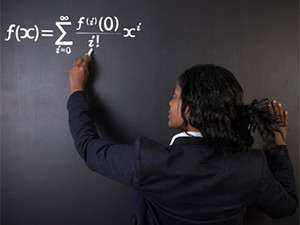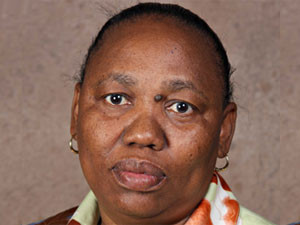
The performance of matriculants in mathematics and physical science improved marginally, from 49.1% in 2015 to 51.1% in 2016 in mathematics; and from 58.6% to 62% in physical science.
This was announced yesterday, in Midrand, by minister of basic education, Angie Motshekga, presenting the results of the matric class of 2016.
With over 800 000 pupils sitting for the exams across the country, the National Senior Certificate (NSC) class achieved a pass rate of 72.5% - up from the 70.7% in 2015.
With regards to maths and science, two critical subjects for the advancement of the country's ICT sector, a total of 8 070 pupils bagged distinctions in maths, with 7 043 in physical science.
Motshekga said performances in mathematics and physical science, which are gateway subjects, have also shown an increase in the number of passes.
The number of learners achieving 30% and above in mathematics has increased from 129 481 in 2015 to 136 011 in 2016, while the number of learners achieving 40% and above in mathematics increased from 84 297 in 2015 to 89 119 in 2016.
The number of learners achieving 30% and above in physical science increased from 113 121 in 2015 to 119 467 in 2016, while the number of learners achieving 40% and above in physical science increased from 69 699 in 2015 to 76 044 in 2016.
The marginal improvement comes on the heels of a recent report, noting SA ranks among the lowest performing countries in terms of mathematics and science achievement scale scores.
Welcome improvement
There have been mixed reactions to the results, with commentators unsure whether the improvement has been as a result of lower standards.
Moira de Roche, independent learning specialist and director of the Institute of IT Professionals SA, says any improvement is welcomed.
However, she adds: "The cynic in me must wonder if it's just due to lowered standards, but on the other hand, I think better marks might have the effect of encouraging more kids to take maths and science. I think learners are often discouraged from doing these subjects because it seems too great a hurdle."

De Roche believes if better marks mean more entrants into computer science and information system studies, then it will have the overall effect of increasing the pool of potential employees and entrepreneurs in the ICT sector.
Also commenting on the results, Emmanuel Mushayikwa, senior lecturer for Physics Education at Wits School of Education, says: "We should always remember that behind the statistics are real people, whose lives have been made or broken by these results.
"In this regard, I consider any improvement in the results, no matter how slight, to be significant, because it means some lives of some children somewhere have been granted better opportunities to make it in life. I believe the education system is doing a commendable job, but we should continue to strive to do better."
However, Mushayikwa says SA should aim to bring equal basic standards and expectations to the multiple educations systems currently in the country. He argues the basic education public schools system should have the same standards as the independent schools system, and their examination systems should be deemed equivalent.
"An increase in physical sciences and mathematics pass rates means more students are able to enrol in scientific and technological fields. This is a good thing," says Mushayikwa.
Nonetheless, he points out the largest problem SA is facing right now is the fact that, unlike pupils from independent schools, most of the learners from public schools who enrol in engineering and scientific-technological fields drop out, failing to make it to the end because they lack the basic grounding needed for these courses.
This has prompted some tertiary institutions to introduce bridging courses and longer programmes to help these students, he explains.
At UCT, for example, students enrolled on the bridging course will complete a three-year engineering degree in four to five years, in addition to the one-year bridging course they have done.
"While this has helped graduate more students from previously disadvantaged communities, it is an expensive model for the student, for the institution and for the student's community - being poor, I expect, their expectations would be to complete the course as soon as possible so as to take responsibility for the family's bread-and-butter issues.
"The Basic Education Department needs, therefore, to ride on the wave of the latest success in matric results, to be more focused on quality, and raising the standards and expectations to the level of the IEB if we are to do justice to our learners in the public school system."
Question marks
While the Democratic Alliance (DA) congratulated all learners who performed well in their NSC examinations, the opposition party is disturbed by the maths and science results.
In a statement, the DA says: "We are also concerned that mathematics achievement has flat-lined. The pass rate for mathematics is only 51.1% (49.1% in 2015), and the rate for maths literacy has dropped for the fifth year in a row to 71.3%.
"It is still an open question whether the upward adjustments of the raw marks in mathematics, mathematical literacy and 26 other subjects led to an artificial inflation of the marks. We will be following up with the quality assurer, Umalusi, to make sure that the standardisation process was carried out correctly."
Motshekga said the class of 2016 is the ninth cohort of learners to sit for the NSC and the third cohort to write CAPS-aligned NSC examinations.
"The class of 2016 has recorded the highest enrolment of grade 12 learners in the history of the basic education system in South Africa."
She commended the Free State education MEC and his team for achieving the highest pass rate by province in the 2016 matric results.
Motshekga provided a glimpse of results captured, excluding progressed learners (pupils who fail the same grade twice and are then promoted to the next grade). The Free State was the only province to break the 90% threshold, with a 93.2% pass rate. It was followed by the Western Cape with 87.7%, and Gauteng with 87%.
Gauteng was followed by the North West with 86.2%; Northern Cape with 82.2%; Mpumalanga with 81.3%; KwaZulu-Natal with 69.5%; Limpopo with 68.2%; and the Eastern Cape stood last at 63.3%.
The minister commended the six provinces that recorded a higher than 80% pass mark.
Share